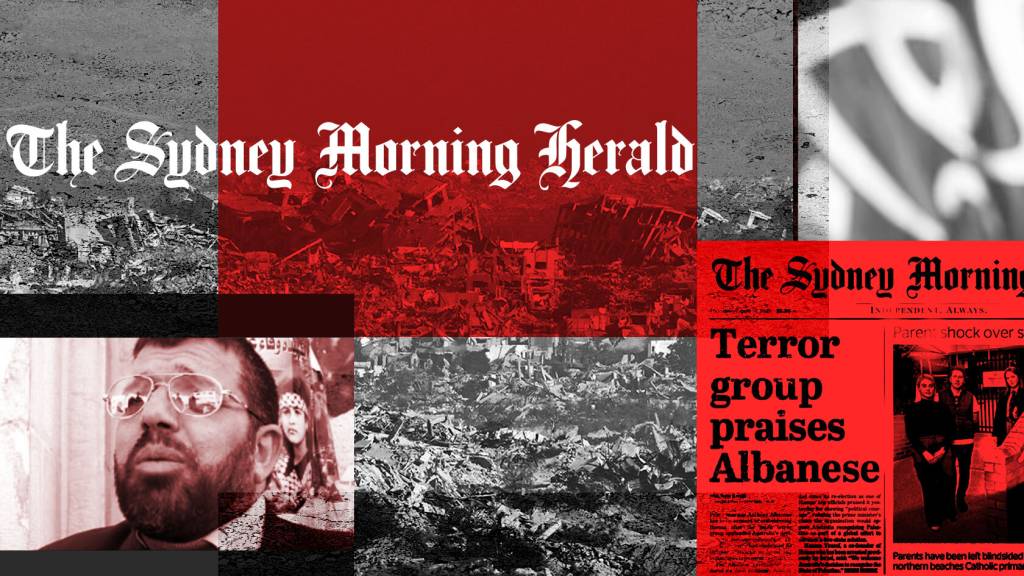
The Sydney Morning Herald (SMH) found itself embroiled in controversy after publishing an exclusive report that misquoted a senior Hamas leader. The incident unfolded following the Australian government’s announcement of its intention to recognize a Palestinian state at the upcoming UN General Assembly in September.
The article, authored by foreign affairs correspondent Matthew Knott, appeared on the front page on August 14 with the headline, “Terror group praises Albanese.” It quoted Hassan Yousef, a co-founder of Hamas, who has been incarcerated in an Israeli prison since October 2023. This discrepancy led to a political uproar, with Prime Minister Anthony Albanese denouncing the quotes as “propaganda” and the opposition leveraging the situation for political gain.
The Timeline of Events
August 11: Government Announcement
The Albanese administration declared its plan to recognize a Palestinian state, aligning with similar moves by the UK, Canada, and France. This decision marked a significant shift in Australia’s foreign policy and was expected to generate international reactions.
August 13: The Initial Report
At 6:32 pm, SMH published Knott’s report online, attributing statements to Yousef that welcomed Australia’s recognition of Palestine. The article initially stated, “Listed terror group Hamas has applauded the Albanese government’s decision to recognise Palestine.”
The piece further claimed that Yousef rejected the Palestinian Authority’s demands for Hamas to demilitarize, which were conditions cited by Albanese in explaining the recognition decision. The report quoted Yousef as saying, “We welcome Australia’s decision to recognise the State of Palestine, and consider it an important step towards achieving justice for our people and securing their legitimate rights.”
August 14: Political and Media Reactions
The story was prominently featured in print, leading the front page. Later that day, Prime Minister Albanese criticized the quotes, pointing out that Yousef had been imprisoned in Israel since October 2023, thus questioning the authenticity of the statements. Albanese warned the media about the potential for Hamas to engage in propaganda.
At 12:21 pm, The Australian Financial Review published an article by Andrew Tillett, who confirmed with Hamas official Basem Naim that no statement had been issued by Yousef. Naim provided a statement on behalf of Hamas and a link to the organization’s Telegram channel, which denied any statement from Yousef regarding the Australian position.
By 12:35 pm, Nine, the parent company of SMH, announced an imminent update to Knott’s story, which was revised to focus on the political backlash against the Albanese government. The updated article included additional quotes from various political and community leaders, as well as the Hamas denial.
August 15-17: Further Developments
The Kennedy Awards took place on August 15, where Knott was a finalist for outstanding foreign correspondent. However, the award went to SBS’ Prue Lewarne. On August 17, Knott was replaced by James Massola on the ABC’s Insiders program, where Massola described the incident as a “stuff-up” rather than a conspiracy.
Expert Analysis and Implications
Media academic Monica Attard commented on the saga, highlighting a “basic fact-checking step” that appeared to have been missed. Attard noted that in politically sensitive situations, it is crucial to verify whether quoted individuals are operational and not incarcerated.
“In stable political situations it’s not unusual for the office of a politician to issue approved statements on behalf of the office holder. In this case, however, a basic fact-checking step appears to have been missed which, in the case of Hamas, is surprising — if not shocking,” Attard stated.
This incident underscores the challenges faced by journalists in verifying information from conflict zones and politically charged environments. The controversy also highlights the potential consequences of misinformation in international relations and domestic politics.
Looking Ahead
The SMH controversy serves as a cautionary tale for media outlets, emphasizing the importance of rigorous fact-checking and verification processes, especially when dealing with statements from contentious organizations like Hamas. As Australia prepares for the UN General Assembly, the government will likely continue to navigate the diplomatic complexities of its decision to recognize a Palestinian state.
For the media, this incident may prompt a reassessment of editorial practices and the development of more robust mechanisms to prevent similar errors in the future. The story also raises broader questions about the role of media in shaping public perception and policy discourse in an increasingly interconnected world.






